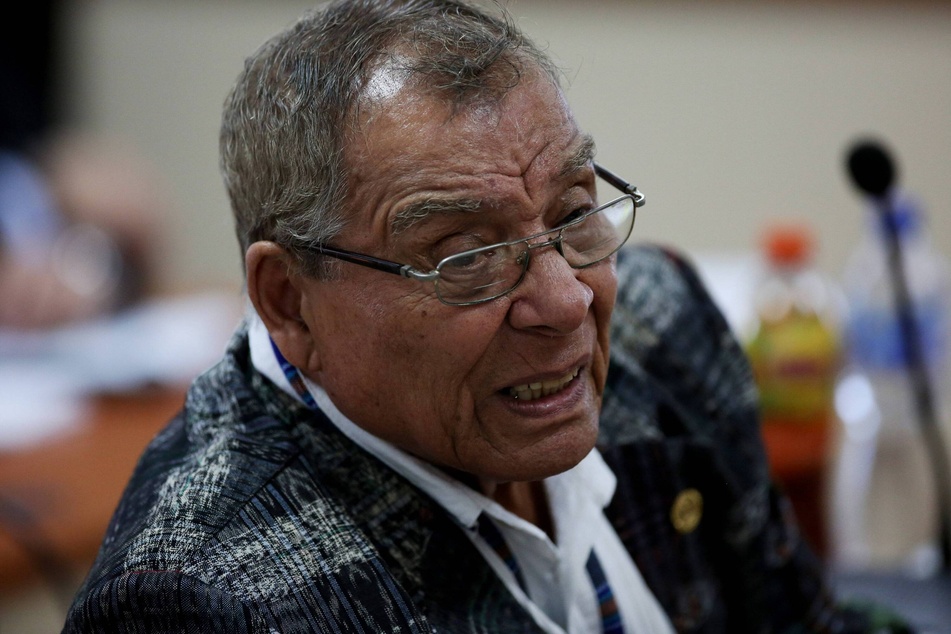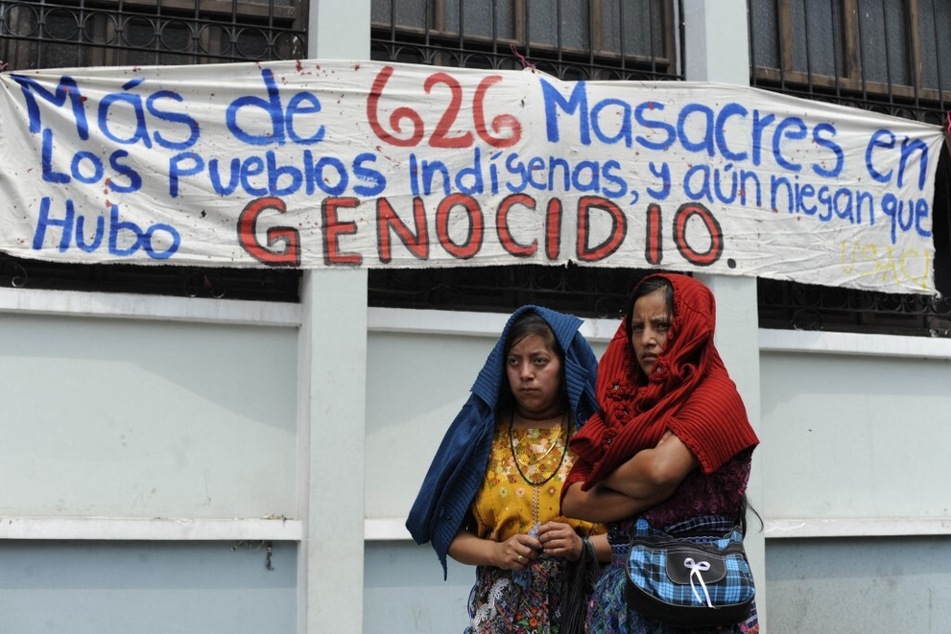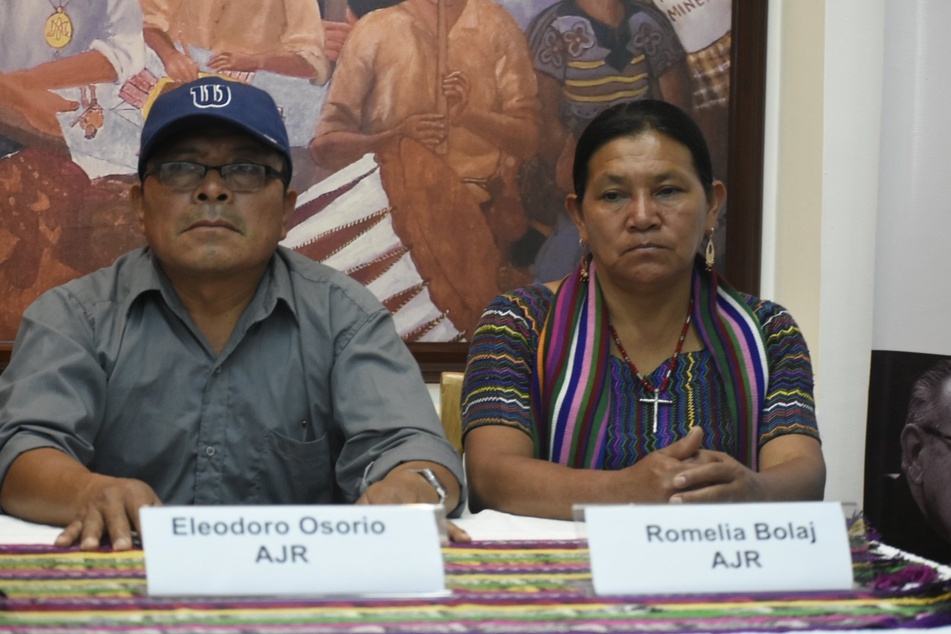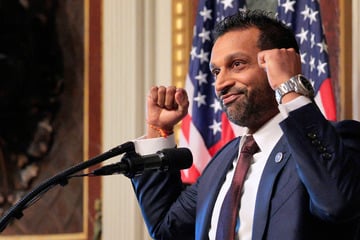Historic Guatemala genocide case shines light on US complicity in Maya Ixil massacres
Guatemala City, Guatemala - The United States' role in spurring the genocide of the Maya Ixil people is coming under the spotlight as a historic trial against former General Manuel Benedicto Lucas García kicks off in Guatemala City.

Guatemala's Criminal Sentencing, Drug Activity and Environmental Crimes Court for High Risk Processes, Group A is set to hear a complaint against the country's ex-Army chief of general staff over two decades after it was filed 2001.
One of the bloodiest generals in Latin American history, Lucas García stands accused of acts of genocide as well as systematic crimes against humanitarian duties, forced disappearances, and sexual violence during the government of his brother, former President Fernando Romeo Lucas García.
Under President Lucas García's regime (1978-1982), military operations targeted and killed at least 1,771 people in the Maya Ixil region.
Forced displacements, bombings, and horrific sexual abuse against women and girls were rampant as the military destroyed entire villages and burned down houses and crops.
Survivors demand justice and truth
Survivors of the Ixil genocide, more than 150 of whom are due to share testimonies before the court, are hoping to secure justice and accountability before it's too late.
"We have been the courts and in this investigation fight for 23 years, in this fight for justice, in this fight for truth, in this fight for reparation and non-repetition," José Silvio of the Association for Justice and Reconciliation (AJR) said in a Thursday webinar organized by the Network in Solidarity with the People of Guatemala (NISGUA).
"To the survivors, we are deeply grateful for their courage and strength," said AJR's Eleodoro Osorio in a press conference earlier that day. "With this trial, we dignify our relatives, who – without committing a crime – were victims of the genocide."
US urged to reflect on its role in Maya Ixil genocide

The attacks on the Maya Ixil people formed part of a wider state assault on Indigenous communities during the Guatemalan Civil War (1960-1996). The country's Historical Clarification Commission has registered more than 250,000 deaths and disappearances, 1 million internal displacements, and 600,000 massacres during that period.
"It was a policy of the Guatemalan government to import techniques and military strategies that have been used in other parts of the world to commit genocidal acts against Indigenous Peoples and impoverished peoples subject to economic, political, and military exploitation," said Raúl Nájera of the Office of Human Rights of the Archbishop of Guatemala.
US government complicity in the crimes is well-documented. In 1954, the US backed a coup to oust Guatemala's democratically elected President Jacobo Árbenz, who had instituted reforms to benefit impoverished Indigenous peasants – in opposition to US corporate interests.
In the 1960s, the CIA helped to install a brutal military dictatorship. The US trained Guatemalan military and police in torture and counterinsurgency tactics and helped prepare kidnapping squads created to target resistance groups.
Military assistance continued flowing to Guatemala through the 1970s and into the 1980s, when President Ronald Reagan publicly promoted the Guatemalan government and provided CIA support to the country's genocidal regime.
To this day, the US government continues to send military assistance to Guatemala, despite persistent allegations of misuse.
"As the people of Guatemala are calling for the accountability of the ex-general, this moment also invites those of us from the United States to reflect on its role in the genocide of Indigenous peoples in Guatemala," urged NISGUA's Michelle Liang.
Importance of international solidarity with Guatemalan survivors

Advocates say the case against Lucas García is so clear that it must result in a guilty verdict – unless Guatemala's corrupt judicial system denies justice to the survivors.
"We can expect anything from these actors," Nájera warned. "We believe they respond indisputably to an agenda that perpetuates economic interests that aren't only Guatemalan, but also have their origins in other countries. They have their origin in the big capitalist, extractive economy of North America, the United States, Canada, Europe."
"Israel also has a direct role in driving impunity in this country and in the system of corruption we are seeing," he continued, noting that many judges and magistrates aligned with the Guatemalan army and oligarchy are supported with funds from Israeli institutions. Israel provided $38 million in military aid to the Guatemalan government during the civil war.
Despite foreign influence and Guatemala's own colonial history, the legal team has hope for a positive outcome in Lucas García's case, especially if people around the world take a stand with Maya peoples.
"With such strong opponents, we need international solidarity, acts of solidarity, acts of denunciation, in order to show the Guatemalan state and these interest groups, at least at the national level, that there is strong international support to overcome these conditions of impunity and corruption," Nájera said.
Lucas García's trial opens on March 25 and is expected to last for three months.
Cover photo: JOHAN ORDONEZ / AFP
